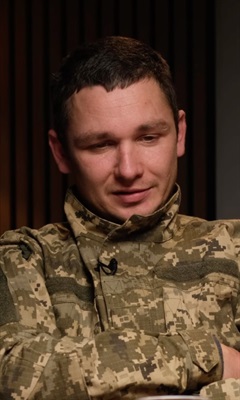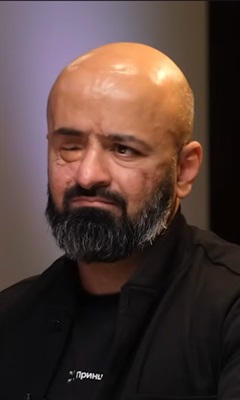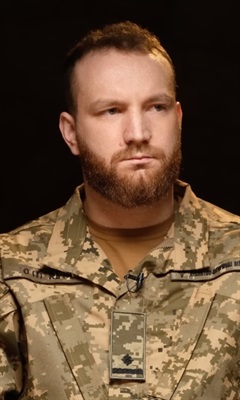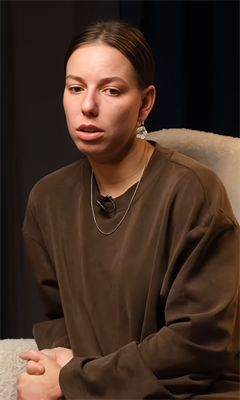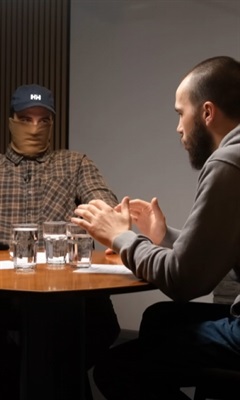Not sure if we can make it to winter — little Kateryna from Lyman on war and her family
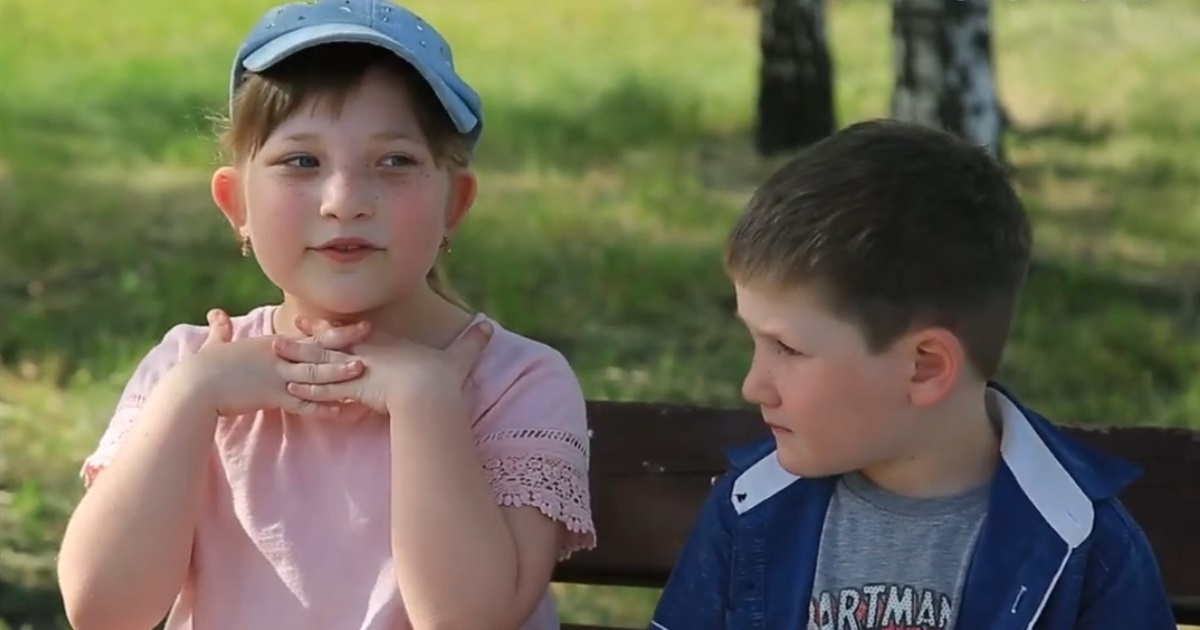
As of today, Lyman is under occupation, while the family lives in evacuation. Watch Kateryna’s story in our special project “Svidchennia Viyny” [Ukr. The Evidence of War] on Svoi YouTube Channel.
“I honestly have no idea how we will go on”
It’s been merely a week since they got out of the thick of hostilities, having survived a month of the most brutal bombing, yet they haven’t lost the ability to smile. While the mother was hesitant to be interviewed (she kept saying that there was “nothing special” about their experience and that other people had been through worse), 8-year-old Kateryna took over the conversation. The girl told us that she loved Maths and that she, in her second year of elementary school, knew how to count to 100 and how to solve equations. The school she used to go to was a good one. The girl couldn’t recall the last time she attended offline classes, however, her online classes were terminated in April.
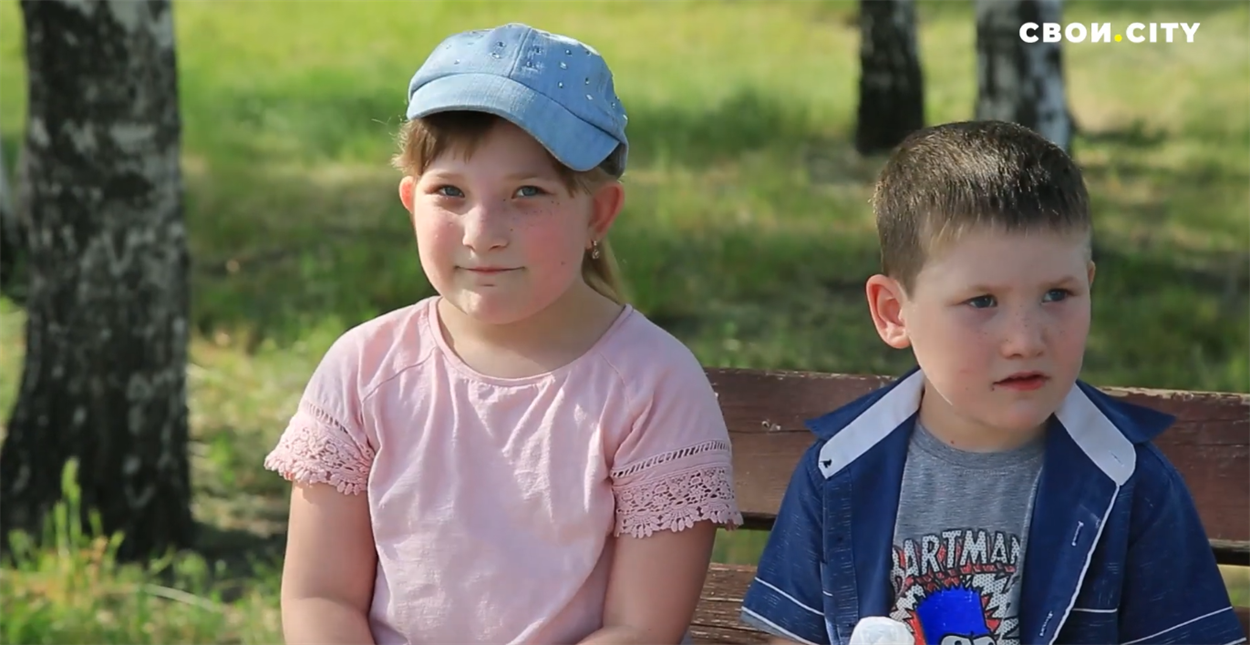
She dreams of becoming a journalist, which the family knew nothing about. Maybe it was us — people with a microphone and a camera who approached her family in the relatively peaceful town of Donetsk Oblast — that had inspired her. When asked what a war was, the little girl can give a very detailed answer. The most striking part is that her tale begins with “When I was little”. So, when Kateryna was little (which was as recent as February 23), she lived with her parents and a younger brother in a one-family home. For her, the war began with sitting in a bathroom. To this little girl, the reason is obvious: there were no windows in their bathroom.
“The first artillery salvo sent my legs shaking, I was really scared. They were shelling some other places. And then they got to us,” tells Kateryna.
The part of Lyman where the girl was hiding in a bathroom of her home was shelled so frequently that her parents decided to relocate their family to her grandparents’. There, they spent countless days in a basement. The 8-year-old who was now a grown-up recalls that "the shelling was shattering", while she and her brother were drawing pictures and playing with their grandparents. She told that her grandpa had "the hands of gold" and that they had a hearth. Kateryna couldn’t recall what the adults cooked on that hearth, but they weren’t hungry.
The most difficult thing, she said, was to relieve herself. At first, they went outside to do their business, but very soon they had to put an end to that practice due to constant shelling, so the 8-ear-old had to use a bucket right in that basement.
At first, the family moved to Shchurove, and for some time, the surrounding forest was peaceful and quiet. “My mom was collecting the laundry after it was dry, and then something big came in our direction. The windows were shattered, and the roof was almost completely gone.” That’s the girl’s recollection of a recreational compound that sheltered them. And then we heard a devastating confession spoken by an 8-year-old: “I honestly have no idea how we will go on. Not sure if we can make it until winter.”
Such are the thoughts of an 8-year-old child, a resident of a resort town of Lyman of Donetska Oblast before February 24. She’s obviously traumatized by her experience and is afraid to recollect those events. However, the girl is completely calm when she explains her lack of confidence in tomorrow. In 2014, Kateryna, just 6 months old at the time, was also living in a basement with her mother. The war haunts this little girl from the earliest days of her life.
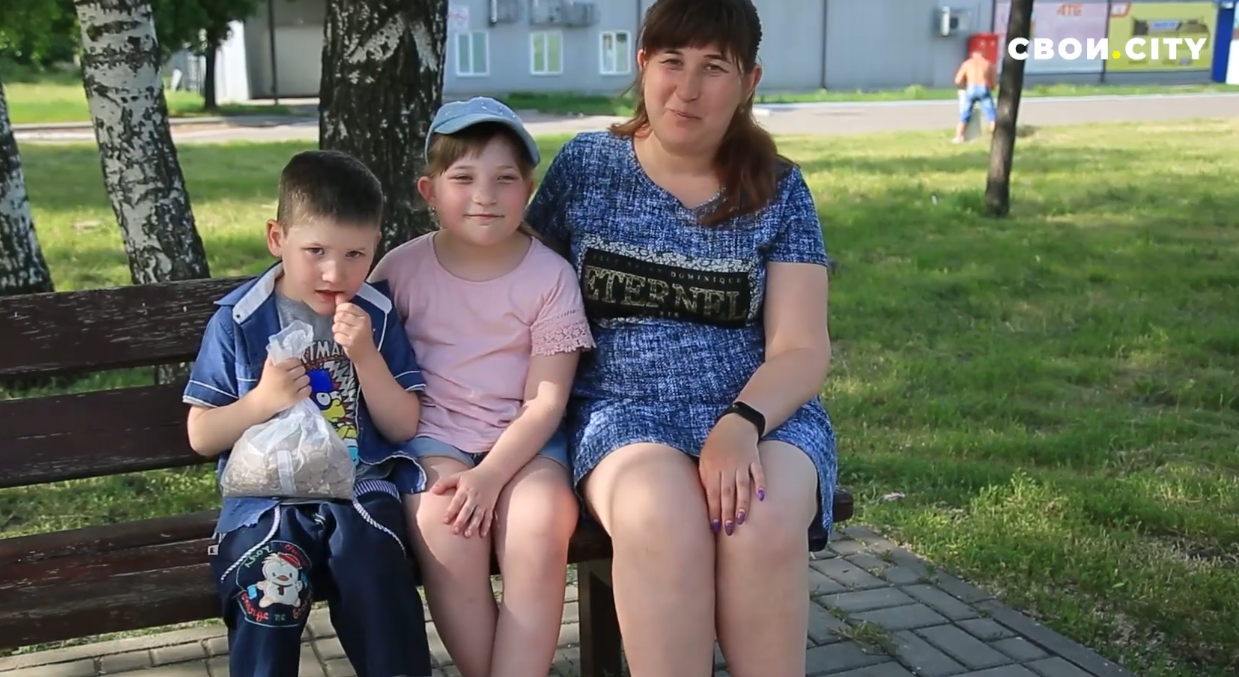
“We survived yet another day, and that’s good. But we can’t make any plans”
Her mother, Tatiana, set herself a goal to hold on to dear life and not lose her heart. She reasoned that her kids could see and feel everything. Right before the full-scale war broke out, Tatiana successfully completed her internship and February 24 was supposed to become her first day at work as a full-fledged employee. The eve before the war was full of everyday routines the woman now misses a lot. And back then, at 6 a.m. on February 24, Tatiana refused to believe that the full-scale war broke out, as it was still quiet in their town.
It was on Abril 20 when she witnessed that war that ended up leaving her and her children homeless. Today, as a true optimist, the woman says that she had time to prepare, unlike the poor citizens of Mariupol or Volnovakha who had to figure it out as they went. The family thought they were ready for whatever the future brought, and then the first ever shell hit a neighbor’s house, so the family relocated to the grandparents’, into their basement. Everyone believed that it wouldn’t be long before they returned home. They already had some experience living in a basement in 2014. Besides, the family didn’t own a car, and getting out of their town became a difficult task. And, like everyone else, they were unsure where they could go and how they could abandon their home.
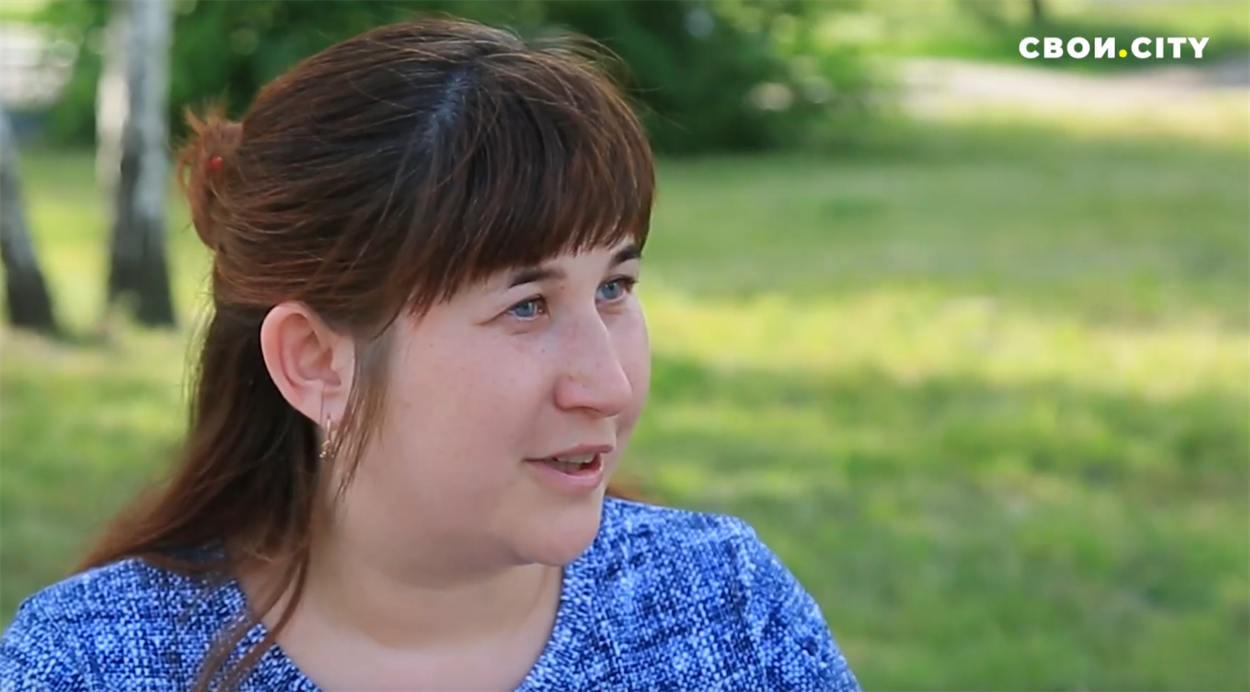
First, the power was cut off, then the gas supply. During the short periods of calm, their town looked as usual, plus, the spring added some bright colors. Besides, with each pause in the bombings, there was hope that it was over, and it would be fine from then on. A neighbor’s house caught fire, and Tatiana’s parents started telling her to take the kids and leave. It was a hard decision, especially since the grandparents themselves vehemently refused to leave their home.
On May 3, Tatiana, her husband, and their kids hit the road. When going through the town, they were spooked to see all those broken wires and all that smoke. Tatiana is still uncomfortable that her experience wasn’t as horrifying as the other people’s, and calls their departure from Lyman “a bit apocalyptic”.
At first, they couldn’t travel far from home and managed to reach the nearby town of Shchukove. There, they had some friends living at a resort that had a bomb shelter. Before the war, all everyone cared about was service, while after the war broke out, the most important thing was that the resort had a reinforced basement. For the first couple of weeks, it was quiet (which roughly translates to “no shells were hitting objects nearby”).
One day, quite by a stroke of luck, Ivan Subbotin, a volunteer from Myrnohrad, brought them some food and offered to evacuate them. Yet they had nowhere to go and nobody to host them, besides, no shells were landing nearby, so the family just wrote down his number. In just a few days, a shell hit the third floor of the resort, while the family resided on the second floor. The shell hit the building while they were climbing the stairs, and the stairwell collapsed.
“It took several days for the realization of what could happen have we been just several meters higher to sink in. At the moment, all my husband and I could think about was how to get ourselves and our kids out of the building,” shares the mother of the family.
That’s when they dialed Ivan’s number, and on the following day, he came for them. They left the town to the sounds of volleys of artillery, surrounded by destroyed vehicles and burning trees. The family did their best to duck down and stay lower than the windows of the volunteer’s vehicle.
Starting in a new town from scratch, with no home, no jobs and no money is the problem that every IDP has to face. As of today, that’s exactly what worries Tatiana and her husband. The young mother of two shares that her emotional state is pretty much the same as it has been while they were living in the basement: “we survived yet another day, and that’s good”.
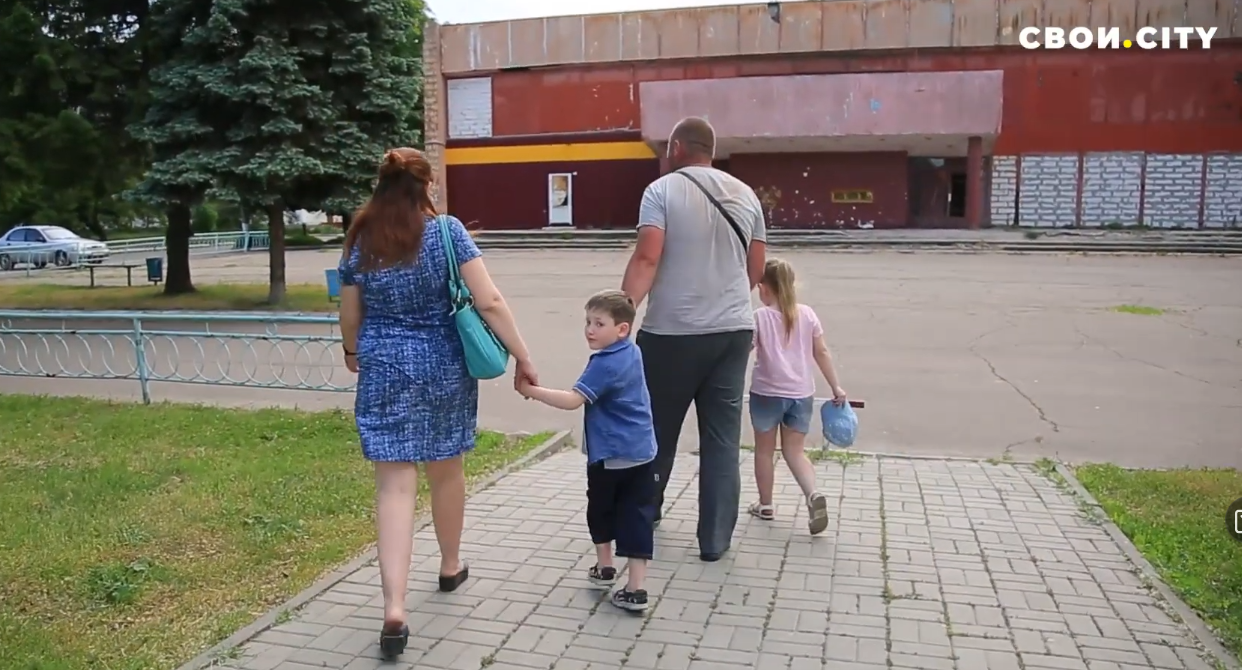
Tatiana shares her emotions when in early May, they lost contact with her parents, and then someone sent her a video of their destroyed home. Her parents are safe now, they managed to survive and leave the town. With restraint, Tatiana speaks of how she managed to hold on and not show her kids her fear for their grandparents’ lives. For that matter, the woman believes that the kids’ emotional wellbeing is of utmost importance, for they will have to live their lives with those memories of war. Even when they were living in basements, the woman spent time with her children, drawing, writing, and solving mathematical problems with them. As of today, Tatiana hardly sleeps, as the war haunts her in her dreams. She struggles, fighting herself and trying to be the best mom for her kids, being as kind and affectionate as she possibly can.


